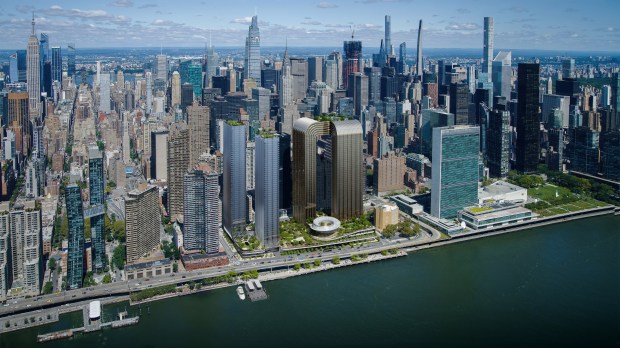I am proud to support Freedom Plaza, a visionary proposal as part of New York’s downstate casino bid just south of the United Nations along the East River. I firmly believe in the power of equal opportunity, inclusive development, and community reinvestment. Freedom Plaza promises to address New York City’s most pressing challenges by carefully integrating housing, jobs, culture, and open space in East Midtown.
As mayor of New Orleans from 1994 to 2002, I saw personally how well-considered municipal investments, such as creating a downtown casino or enlarging the convention center and sports facilities, can boost the city’s economy, reduce violent crime, and improve people’s quality of life.
Under my direction, the city received national honors like the City Livability Award and the All-American City Award, the unemployment rate was halved, and violent crime fell by over 60%. This record was the product of brave decisions, solid collaborations, and an unshakable dedication to equity; it wasn’t an accident.
I’ve been honored to support inclusive economic policies and initiatives around the country as CEO of the National Urban League, including our brand-new, 17-story Urban League Empowerment Center in Harlem.
Freedom Plaza is guided by the same idea. This project directly addresses the housing crisis by providing more than 1,000 new homes, including more than 500 permanently affordable units under NYC’s Mandatory Inclusionary Housing Program. It also provides working families with direct access to Freedom Plaza Park, a sprawling 4.77-acre park that will support an inclusive, self-sustaining neighborhood center.
The integrated economic promise of this endeavor is what makes it even more appealing. 8,000 permanent union employment and thousands more during construction are anticipated to be created by Freedom Plaza, providing genuinely family-sustaining occupations with a solid foundation in labor relationships.
Minority entrepreneurs will benefit from the expansion. Projects based on local hiring and living wages stimulate upward mobility, reduce racial wealth disparities, and stabilize neighborhoods, as my time in New Orleans and at the National Urban League confirmed.
Beyond housing and employment, Freedom Plaza will develop into a thriving cultural hub supported by a community center, a museum, and strong arts programming. I acknowledge the importance of creativity, public celebration, and wellness in strengthening a community’s identity and resilience, just as I did when I led the U.S. Conference of Mayors in support of arts vitality and fought for access to the arts in New Orleans.
This project goes beyond rhetoric by providing a significant stake in the development of this expansive place-making initiative, which involves the construction of much-needed housing, a sizable destination park, and a center for dining, entertainment, and hospitality in Midtown Manhattan.
Perhaps most significantly, Freedom Plaza pledges at least $5 million a year to a Community Reinvestment Fund that supports civic, educational, environmental, and justice-focused initiatives. Under the direction of an independent Community Advisory Board, these funds will support local priorities ranging from sustainability, youth development, and tenant support to beautification and arts festivals.
The National Urban League will collaborate to assist in managing that fund if Freedom Plaza proceeds, drawing on our network of 90 affiliates and our decades of expertise in community investment. We are aware that sustainability is about establishing the institutional capacity to maintain families, business owners, and civic life long after the ribbon is cut, not about achieving quick wins.
Concerns over gentrification, traffic, scale, and whether or not such a project actually benefits the community will surely be voiced by critics. My answer is from experience: daring development can elevate rather than replace. With accessible public space, decent-paying jobs, affordable housing, and strong community governance ingrained in its very fabric, Freedom Plaza is more than just a development—it’s a model for just development.
I understand the difficulty of striking a balance between vision, community trust, and actual impact because I helped lead New Orleans through economic renewal and advocate for the same at the National Urban League, tipped the scale on public safety, and anchored multi-million-dollar cultural projects. I also know that amazing changes occur when growth is anchored by solidarity and ambition is based on equity.
Together, we can pursue the promised land of Freedom Plaza.
Morial was the mayor of New Orleans from 1994 to 2002 and is currently the president and CEO of the National Urban League.








